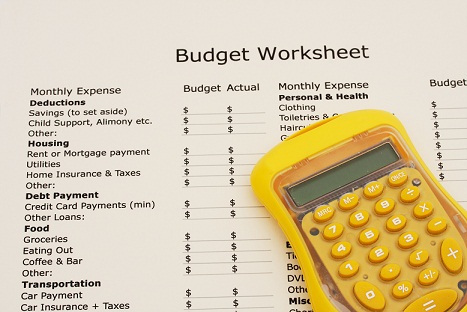It can happen to anyone with a credit card, the realization that their credit card debt has gotten out of control. Occasionally a single event, such as a medical emergency or vehicle repair, may be the cause for the start of credit card debt. Other times it’s been building for years. Regardless of how the credit card debt occurred, at some point you realize that the debt has gotten out of control.
Here are some ideas that can help you come up with a plan to handle all of your debt:
- Step Back and Analyze What Happened – At some point credit card debt starts to build up. What caused it to start accumulating in the first place? Did you have some change in your life that threw your budget out of balance? Did you get a new job, adopt a pet, get married, or have children? If one of those was the reason for the start of debt, you should be able to pinpoint the origin. If you don’t have a clear event that started the debt, dig deeper. Did your trips to the grocery store change slightly? Or maybe you simply had a change in spending habits over time.
- Organize Yourself – Gather all of your information and add up the debt. The best way to do this is to pull your credit reports. Pulling your credit reports will help you find things that you may have forgotten. List all of your debts, payments, and APRs, then find your debt total. You also will want to take a look at your net worth. Your net worth is your financial worth at this moment in time. Take all of your assets (things of value that you own) and subtract your liabilities (money that you owe). The number that results is your net worth. Younger adults, especially recent college grads, may find a negative net worth as a result of student loans. If your nu
 mber is not very high or even in the negative, don’t panic. With a good budget and some financial goals, your net worth can increase over time.
mber is not very high or even in the negative, don’t panic. With a good budget and some financial goals, your net worth can increase over time. - Set Up a Budget to Find Out How Much You’re Overspending – Set up a budget to determine all of your expenses. If you’re unsure of some of the categories, try tracking your expenses for a month to get a full picture of where you’re spending your money. Upon completing a budget, find the difference between income and expenses. You always want to avoid a money deficit as this will lead to debt if not addressed. If you find that you’re over budget and adding income is not an option, you’ll need to try and find expenses that can be reduced or eliminated.
- What Are Finance Charges? – Any time you have credit cards or other debt it’s important to know what your APR is. If your average APR is low, paying back the credit cards will take less time and can save you money on finance charges. If you don’t know what your APR is on all of your accounts, collect all of your most recent statements to find them. Try a credit card debt calculator to see how much you might have to pay in finance charges for the life of the loan. Also available on a credit card debt calculator is the breakdown on how much of your payment is going toward finance charges. More of your payment going to finance charges translates into less going toward actually paying off your debt.
- Seek Professional Advice – If you feel that your debts are overwhelming or they have gotten out of your control, look for help. Remember there are different options to paying back debt. When someone is helping you with your personal finances, ask that they give different options for you to consider. Everyone’s finances are unique. While some options may be a great fit for one individual they might not even be an option for another.
If your credit card debt has gotten out of control, give one of our credit counselors a call at 858-810-7007. Take advantage of your free budget evaluation and see what a difference following a good budget can make.












